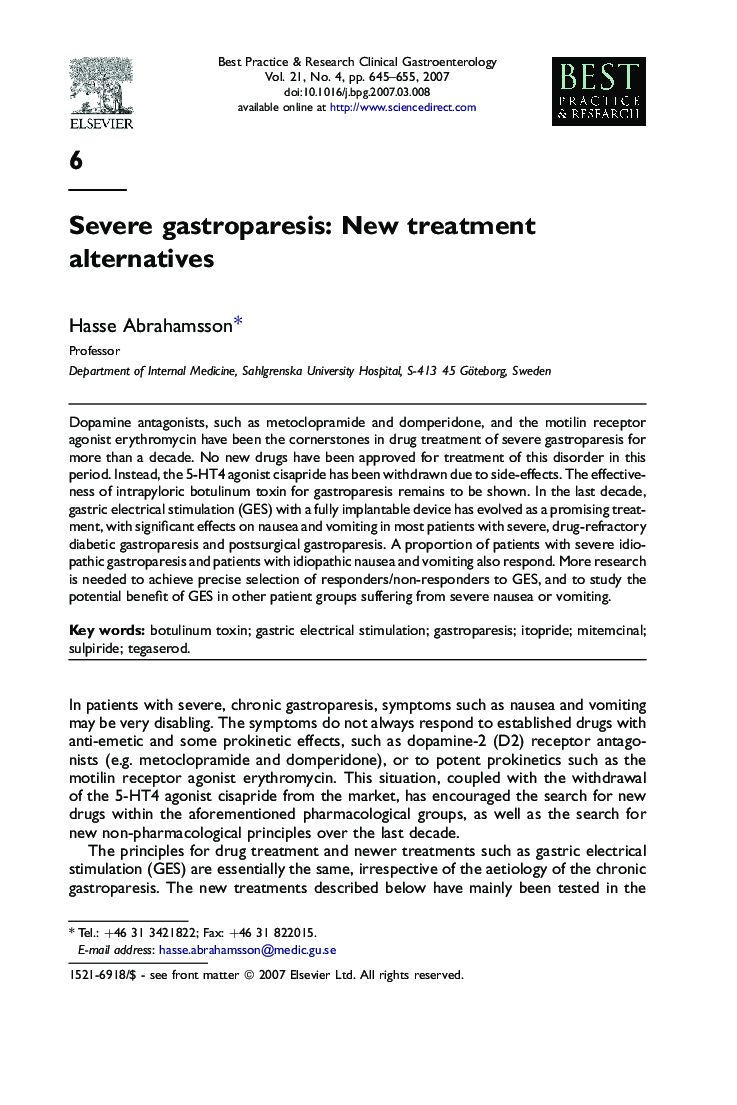| Article ID | Journal | Published Year | Pages | File Type |
|---|---|---|---|---|
| 3254810 | Best Practice & Research Clinical Gastroenterology | 2007 | 11 Pages |
Dopamine antagonists, such as metoclopramide and domperidone, and the motilin receptor agonist erythromycin have been the cornerstones in drug treatment of severe gastroparesis for more than a decade. No new drugs have been approved for treatment of this disorder in this period. Instead, the 5-HT4 agonist cisapride has been withdrawn due to side-effects. The effectiveness of intrapyloric botulinum toxin for gastroparesis remains to be shown. In the last decade, gastric electrical stimulation (GES) with a fully implantable device has evolved as a promising treatment, with significant effects on nausea and vomiting in most patients with severe, drug-refractory diabetic gastroparesis and postsurgical gastroparesis. A proportion of patients with severe idiopathic gastroparesis and patients with idiopathic nausea and vomiting also respond. More research is needed to achieve precise selection of responders/non-responders to GES, and to study the potential benefit of GES in other patient groups suffering from severe nausea or vomiting.
